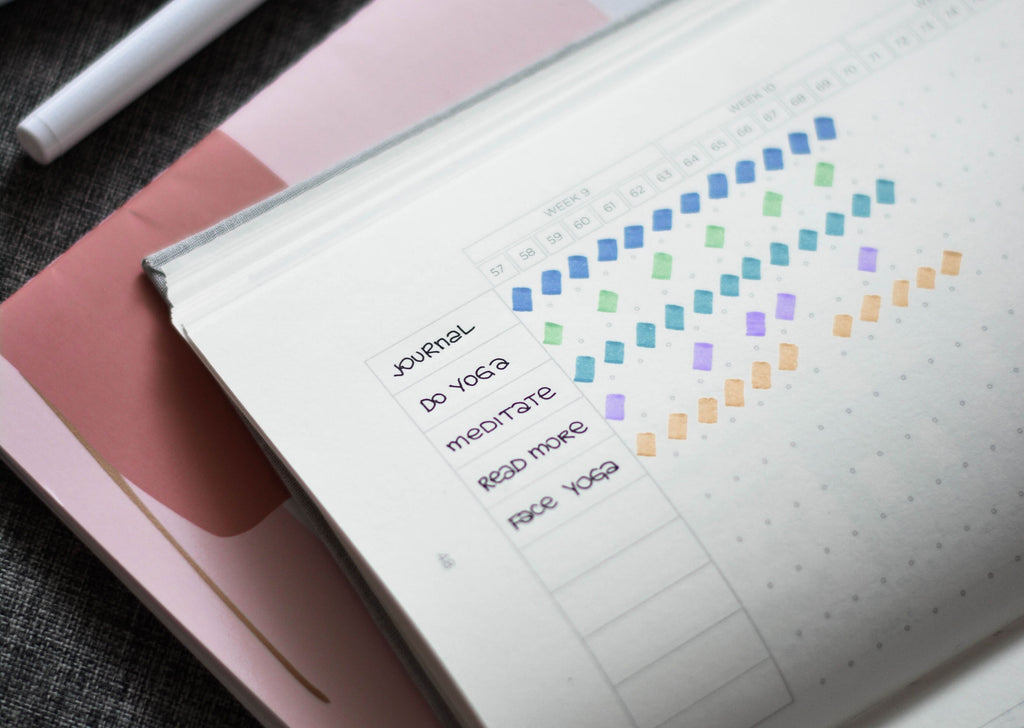Success can be Systematized

In a recent post, I talked about how success depends on discipline. But I can hear some of you saying, “I’m one of those people with no willpower. I just don’t have it in me to be disciplined. My life is too busy. I’m too tired. I’m too depressed. I’m too heavy or too sick or too poor or too whatever.”
Great news—whatever you’re telling yourself probably isn’t true. You’re not too anything to make small changes—and small changes accumulate into big changes when compounded with the magic of time. Discipline comes a lot easier when you apply it to smaller pieces of your life.
Simply start with yes or no
Don’t ask discipline to do the heavy lifting required to achieve goals like, “I will lose 50 pounds,” or “I will change my ho-hum marriage into a happy, satisfying relationship.” Instead, take a look at those big goals and figure out how you could break them down into tiny, daily, achievable tasks. Those mini-goals are how you systematize success.
One of the good things about small, bite-size goals is that you can easily measure them. Measuring success in this way is often as simple as a yes or no answer. Did I do it or did I not? This goal is small and doesn’t seem overwhelming to do daily.
A seemingly trivial goal I set for myself six years ago was to improve my gum health. I systematized this by committing to flossing every single day. I told everyone that I was going to floss every day; I put it on my blog; and every day I checked off a simple yes or no. The daily goal was so tiny—it takes about a minute to floss your teeth—that I didn’t feel discouraged every time I thought about doing it. And the more yeses I could check off, the better I felt about myself. Those small, daily victories gave me momentum to keep going. As the years went by, my dentist at first was measuring my gum health at 3 on a scale of 0 to 5 for periodontal decay . . . then I was down to 2 . . . then 1 . . . and at my last visit, I was at 0. That’s success one little “yes” at a time!
Big goals start with small successes
The same principle of small, systematized, daily successes can be applied to far grander goals, too. Do you want to get in shape? Then instead of taking on a rigorous exercise program, maybe you commit to simply moving your body, in one way or another, for 20 minutes every single day, no excuses. Do you want to improve your health? Something as small as drinking eight glasses of water every day could make a real difference in your overall physical well-being. So could going to bed a half hour earlier. Do you want to learn a new language? After spending just 15 minutes a day practicing for one year, you could find yourself surprisingly good at speaking the language..
Another good thing about systematizing success is that eventually those tiny daily victories turn into habit. I no longer have to remind myself to floss my teeth, because it’s a habit—and habits don’t take nearly as much energy and effort as willpower. Willpower is white-knuckling it. Habits get easier and easier to follow the longer you use them.
Think about it. I bet you don’t have to decide whether to brush your teeth every morning. It’s not a big argument you have to have with yourself every day to make yourself squeeze that tube of toothpaste. You just do it because it's a habit. There’s very little energy required to maintain basic dental hygiene.
Habits can also be destructive, of course. But why not take advantage of the positive power of habit? Systematize your success into small victories you achieve each and every day, and you’ll find discipline will come far more easily. Your best day ever will be within your reach—every day.
Make it personal
What is a BIG goal you’d like to achieve?
Now think about small daily tasks that will help you get closer to that goal. List three you can commit to doing daily over the next month.
Measure your success with these goals by placing a check mark after one, each day that you achieve it. You can put these check marks in your paper planner, daily scheduler notepad or use an app on your phone. My favorite app to use is HabitShare, which can also be used as an accountability check-in with friends and "accountabuddies," virtually, too.
After a month, how many checkmarks do you have? Are you finding these small tasks easier to do yet? Can you commit to these tasks for another month—or six months? A classic mental trick to get you past the brain’s natural desire to shrug off new habits is to promise yourself a reward at the end of the time period with certain performance.
Photo by Prophsee Journals on Unsplash
